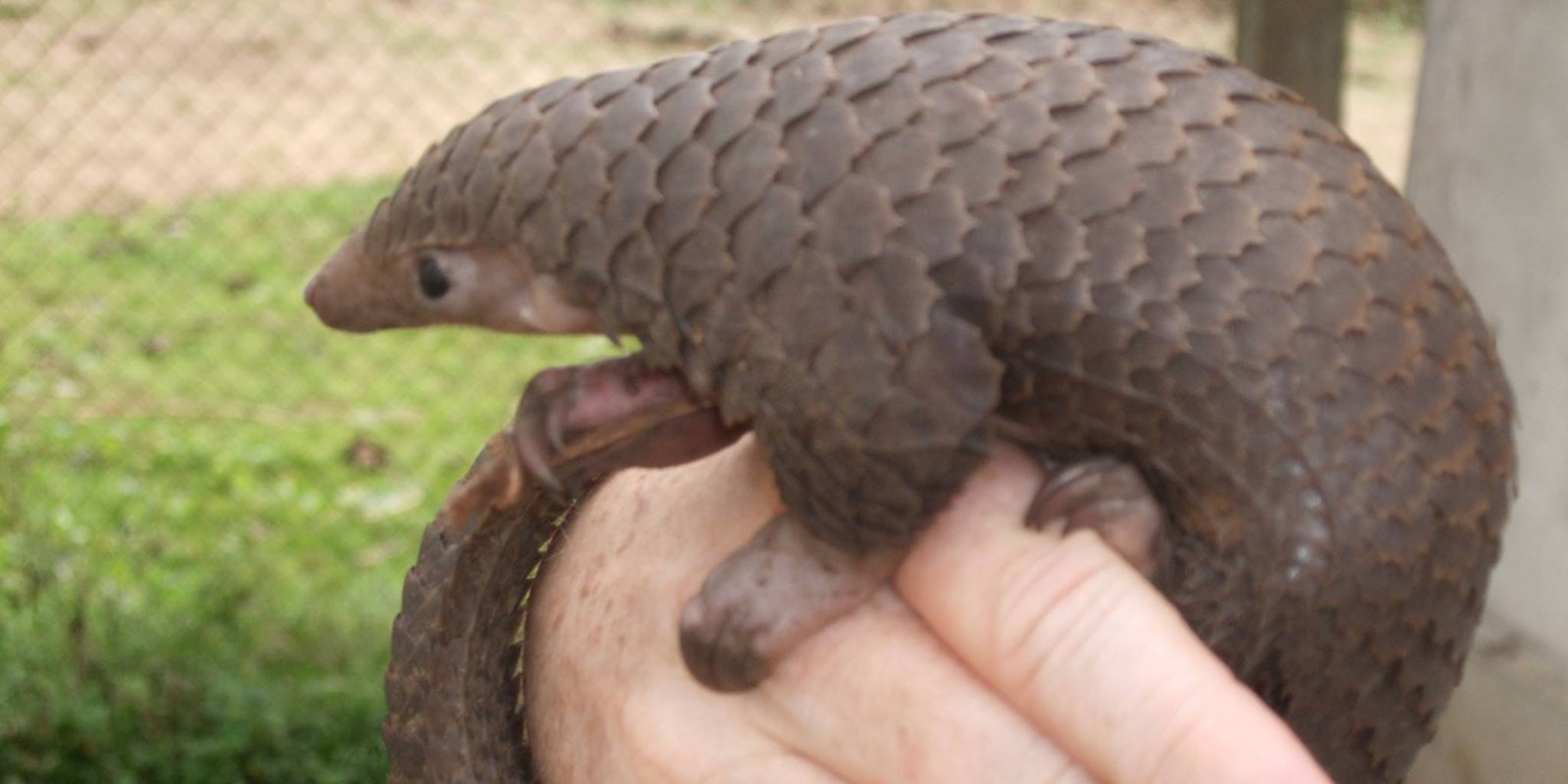BY ETHAN HARFENIST
Commercial trade of the pangolin, the world’s most trafficked animal, has been banned by the international body tasked with protecting plants and animals.
On Monday in Johannesburg, South Africa, all eight species of pangolin—a Pokémon-esque creature once described as an “artichoke with legs”—were protected under the Convention on International Trade in Endangered Species of Wild Fauna and Flora (CITES). The pangolin, endemic to regions in Africa and Asia, was granted the strictest possible protection. The ban follows an earlier motion by the International Union for the Conservation of Nature (IUCN) World Conservation Congress to address the pangolin trade.
“This decision will help give pangolins a fighting chance,” Susan Lieberman, the Wildlife Conservation Society’s vice president of international policy, said in a statement. “The world is standing up for the little guy with this pivotal decision for greater protection of the pangolin.”
Scott Robertson, WCS’s Asia director of counter wildlife trafficking, noted that despite its history of being trafficked, the pangolin’s plight has only recently come into the international spotlight. “I think the world has only really just woke up to the need for action to protect pangolins,” he told Vocativ in an email. “The massive growth in civil society efforts and the U.S. government played a massive role in pulling together efforts.”
Robertson said that up-listing the pangolin to CITES Appendix I will not only raise the profile of the obscure animal, but it will also tighten regulations on operations trying to breed pangolins for commercial trade and also bolster penalties for violations in consumer countries such as China and Vietnam, who use pangolin parts in traditional medicine. However, NPR reported last year that pangolin parts have also been known to show up in the U.S. as well.
In addition to being the most trafficked animal on earth, protecting pangolins may prove useful for humans that desire more than a clean conscience. Scientists in China have been studying the pangolin’s tough exterior, made up of overlapping scales, to develop a self-healing bullet-proof vest.


